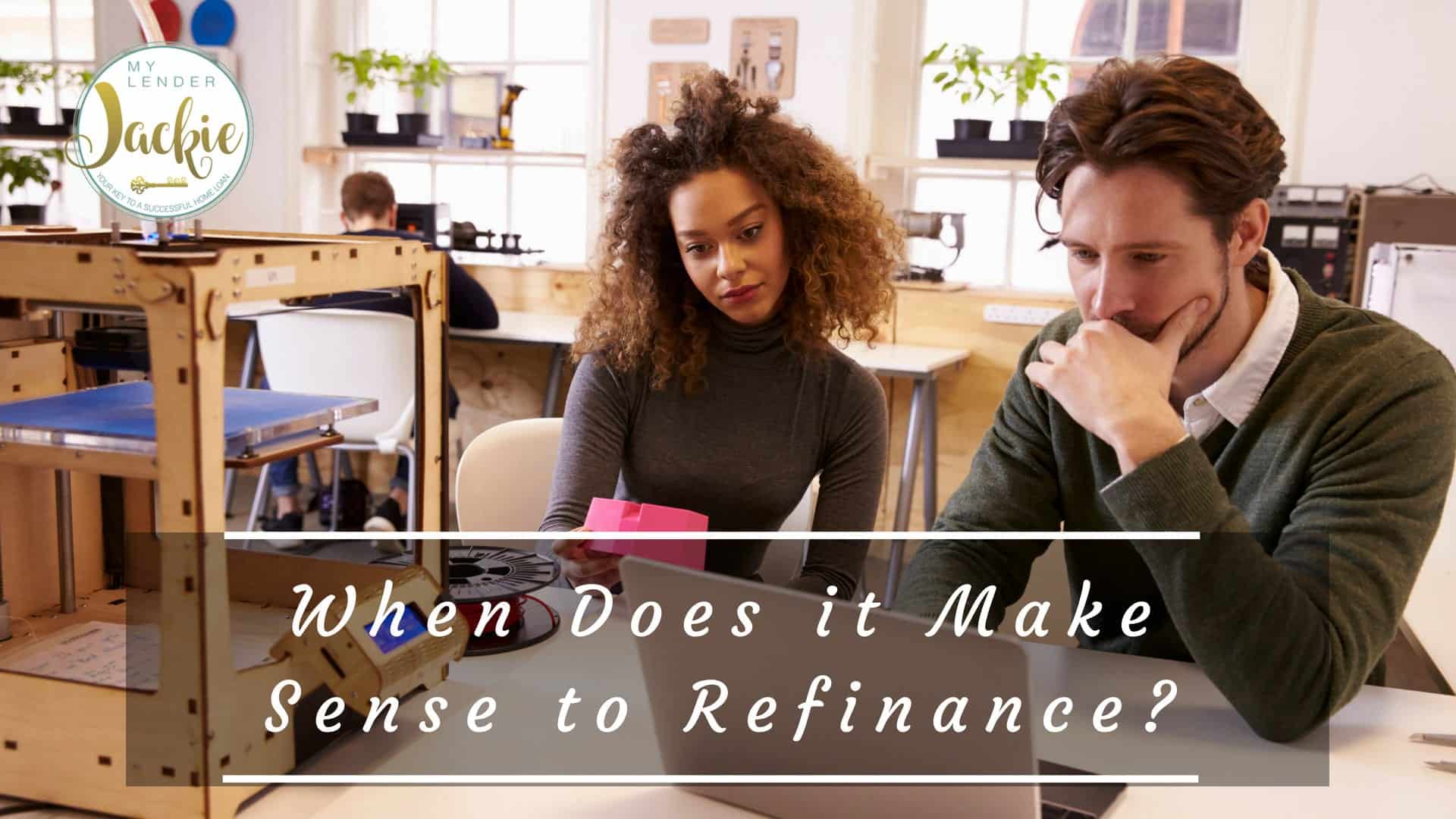A lot of clients come to me lately about a refinance. Is it a smart time to do a refinance and what kind of rates should you expect from a refinance right now? Sometimes the decision to refinance is based on a lot of different factors including interest rates, your current situation, and what you want to do with the money or if you just want to lower terms. It does take a little bit of math to figure out and understand how to break even and amortization.
First, we discuss the breakeven analysis. This process can allow you to figure out how long it will take to recuperate any closing costs that come with a refinance. If the cost to refinance doesn’t make sense for the length of time you’re going to have the loan, it might not be the right time. Typically, a breakeven analysis is about two years or so, so if you’re planning on staying the house at least two years before selling or refinancing again, it might be a good option.
You also need to consider the interest rates. If you can lower your interest rate by a point, refinancing usually makes sense. You can either refinance to lower your terms, your payment, or cash out some of your equity for home improvements, college tuition, or simply paying down debt.
Are you solving a problem or saving money?
This is something you should consider with a refinance. What is the point of the refinance and will it benefit you financially in the future? Then we have to consider amortization. You might end up spending more even though it will feel like you’re spending less. Your lifetime interest costs are another important factor. This is the total amount that you’ll pay the bank over the life of your loan. Your total interest costs increase when you refinance even if your monthly payment decreases. If you choose to get a longer-term, you’ll be paying more in the long run. If you choose to shorten your term to a 10-year or 15-year loan, you’ll be saving not just hundreds but tens of thousands of dollars in interest rate over the life of your loan.
You have to consider that getting a refinance means a brand-new loan and you’re restarting the amortization process over again. Every payment you make goes to paying off your loan starting with higher interest first. By the end of your loan you’re paying primarily principal so starting over on a loan means you’ll be paying primarily interest for the first few years. The longer you keep your loan, more of each monthly payment goes towards reducing the loan balance.
Again, I always want to have a good conversation about why you are refinancing. Are you pulling money out for large purchases or simply reducing your terms? There are lots of reasons to refinance and only you can make that decision on whether it’s a good time or not. But, give me a call – 949-600-0944; I’d love to help sort out all the details and help you make an informed decision.

